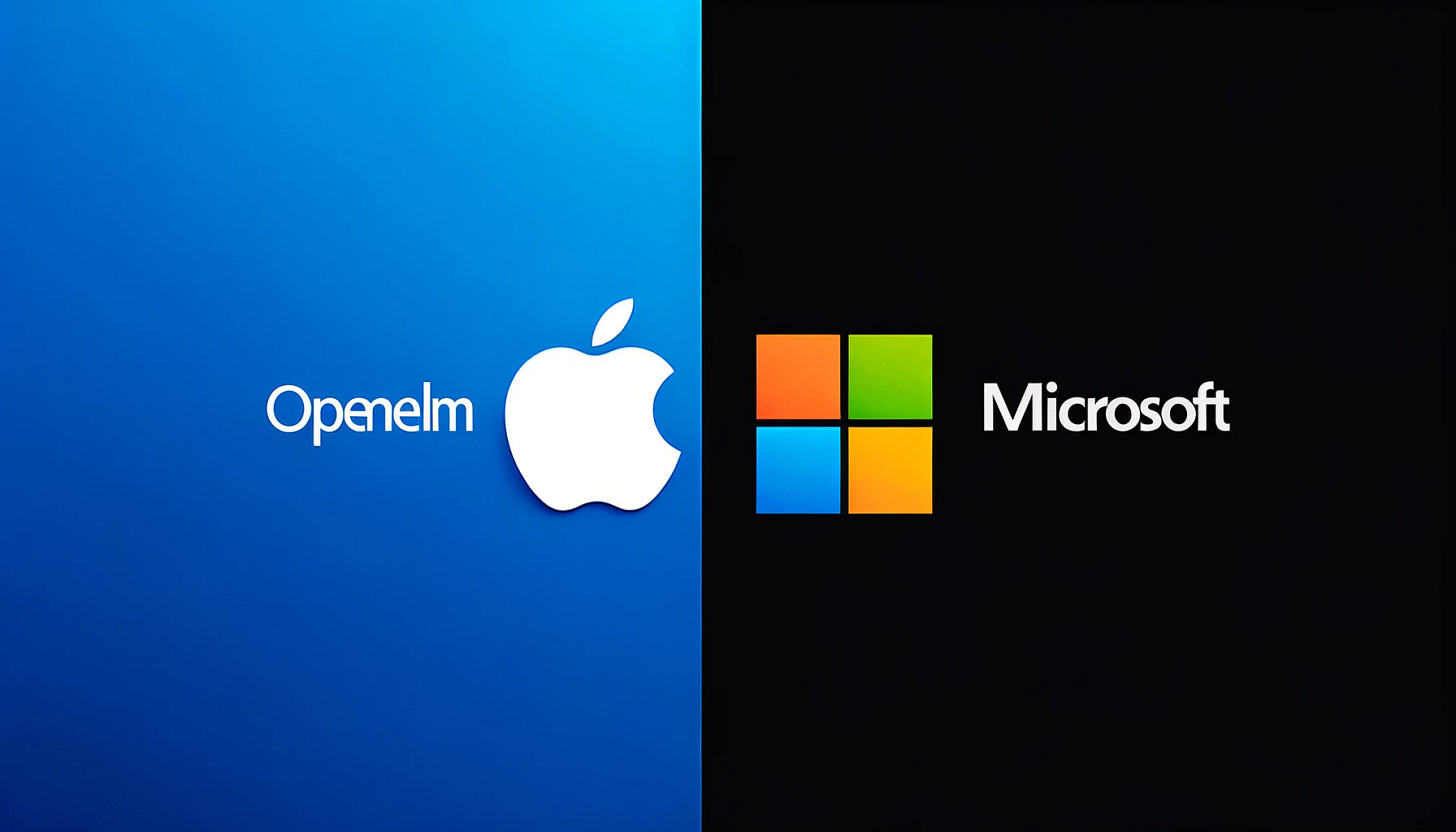🌐 AI News
🔜 Up Next:
- OpenAI is expected to launch a search engine on May 9, 2024, at an in-house event. OpenAI is likely to compete directly with Google in the search engine space. Learn MoreTech Glimpse:
- Nvidia acquires AI workload management startup Run:ai for $700M
- Apple Acquires French AI Company Specializing in On-Device Processing
- ‘To The Future’: Saudi Arabia spends big to become an A.I. Superpower
- OpenAI introduces "Memory" feature for ChatGPT Plus users
- X launches Stories, delivering news summarized by Grok AI
🚀 Top AI Highlights
Apple OpenELM On-Device AI: Apple's OpenELM initiative is a significant advancement in AI technology, offering efficient, on-device language models that prioritize user privacy and enhance device capabilities. With OpenELM, Apple shifts from cloud-based processing, ensuring sensitive data remains on the device, and promises faster, more responsive AI-driven features. Anticipated integration in iOS 18 could revolutionize user experience, showcasing Apple's commitment to privacy and device efficiency. Learn More
Microsoft Phi3 SLM with big potential: Microsoft introduces Phi-3, a family of open AI models that outperform other models of similar size in language, reasoning, coding, and math benchmarks. These small language models (SLMs) are instruction-tuned, context-window-optimized, and available on various platforms including Azure AI and NVIDIA. They are developed with a focus on responsible AI principles and safety-first design, offering a cost-effective solution for a wide range of applications, including resource-constrained environments and latency-bound scenarios. Customers can access Phi-3-mini and look forward to more models in the series for additional flexibility. Learn More
Amazon Q AI assistant for businesses and developers: Amazon Q is a powerful generative AI-powered assistant designed to enhance productivity across industries and businesses of all sizes. It has two main components: Amazon Q Developer, which assists developers in coding and maintaining applications, and Amazon Q Business, which helps employees make data-driven decisions by providing answers, summaries, and content based on company data. A new feature, Amazon Q Apps, allows employees to create their own generative AI applications without any prior coding experience. Amazon Q is noted for its accuracy, multi-step planning, and reasoning capabilities, and is integrated with Amazon QuickSight for advanced Business Intelligence (BI) services. Learn More
Google Introduces Med-Gemini Family of Multimodal Medical AI Models, Claimed to Outperform GPT-4: Google has introduced Med-Gemini, a new family of AI models tailored for the medical domain. These models, built on the Gemini 1.0 and 1.5 LLM, boast multimodal capabilities and an enhanced web search integration. They excel in long-context processing, outperforming OpenAI's GPT-4 models in certain benchmarks. Med-Gemini's development focuses on aiding clinicians and enhancing patient understanding, although the models are currently not available for public use. Learn More
China unveils Sora challenger Vidu (Text-to-video AI model): China has unveiled Vidu, a text-to-video AI tool developed by Shengshu Technology in collaboration with Tsinghua University, which can generate high-definition 16-second clips at 1080p resolution. Vidu is China's answer to OpenAI's Sora, though with a shorter video generation capability. The model is described as "imaginative" and capable of simulating the physical world. However, the development of such tools in China faces challenges due to the lack of sufficient computing power, exacerbated by U.S. export restrictions on advanced chips needed for AI systems. Learn More
😍 Enjoying so far, share it with your friends!
🏆 AI Arena:

OpenELM vs. Phi3
Phi-3 exhibits superior performance and capabilities over OpenELM in various aspects.
Phi-3 Mini, a model with 3.8 billion parameters, demonstrates impressive efficiency and capability in handling large contexts of up to 128K tokens.
This makes it comparable to larger models like GPT-4 and outperforms other models such as Llama-3 and Mistral Large in token capacity.
Furthermore, Phi-3's open-source nature and lightweight design allow it to be deployed on devices with limited resources, making it a viable option to replace traditional assistants like Apple's Siri or Google's Gemini for certain tasks.
On the other hand, while OpenELM models are also efficient and capable of running directly on smartphones and laptops, they are not as powerful or versatile as Phi-3, especially when it comes to handling large contexts and complex tasks.
This positions Phi-3 as a more advanced and adaptable option, particularly in scenarios where resource efficiency and performance are paramount.
🔦 Spotlight
👥 Connect & Feedback!
👉 Join Us:
📧 Advertise In Weekly AI News:
📧 Contact directly at [email protected]
😍 Share with your friends!


